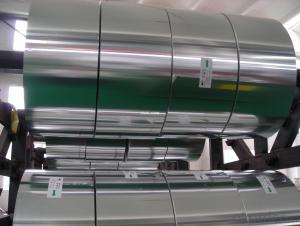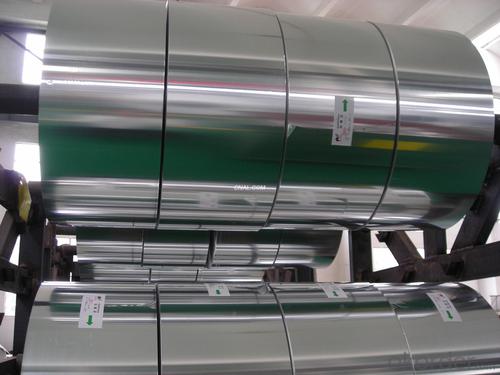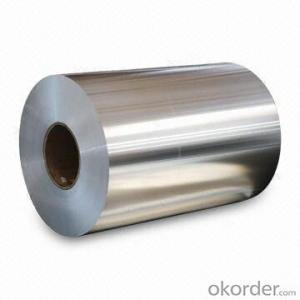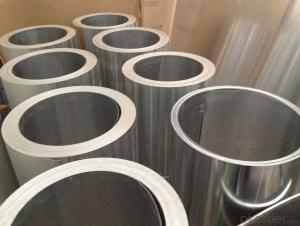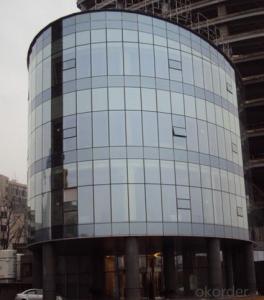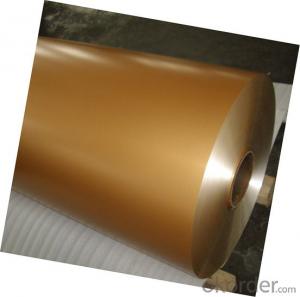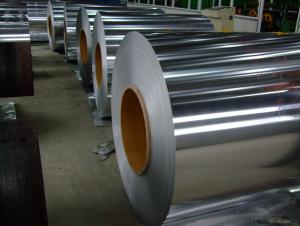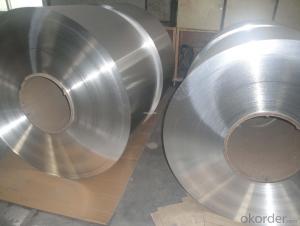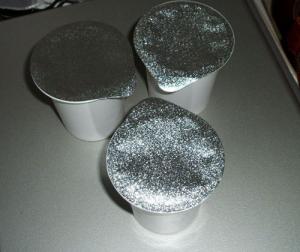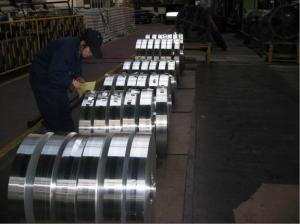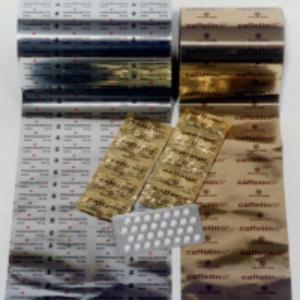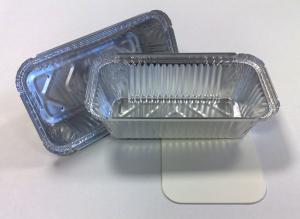Aluminum Anodized Aluminum Coil for Gutter Made in China
- Loading Port:
- Shanghai
- Payment Terms:
- TT OR LC
- Min Order Qty:
- 5 m.t.
- Supply Capability:
- 100000 m.t./month
OKorder Service Pledge
OKorder Financial Service
You Might Also Like
Specification
Product Description
Commodity: Aluminum coil jumbo rolls
Alloy: 1050/1060/1100/1200/3003/3004/3005/3105/5005/5052/5754/5083/6061/8011
Temper: O, H12,H14,H16,H18,H22,H24,H32,H112,T6
Gauge: 0.2mm-8mm
CC and DC material with higher tensile strength and bigger elongation
Company Information
CNBM is in aluminum foil, coil, sheet, plate for more than 10 years, thus we have rich product, technology and market experiences. With the world’s top aluminum processing equipments, experienced technical staff, cooperative and professional sales team, and the enterprise concept of responsibility and sharing, we have been widely focused since the day set up, and has gained high praise from customers home and abroad until now.
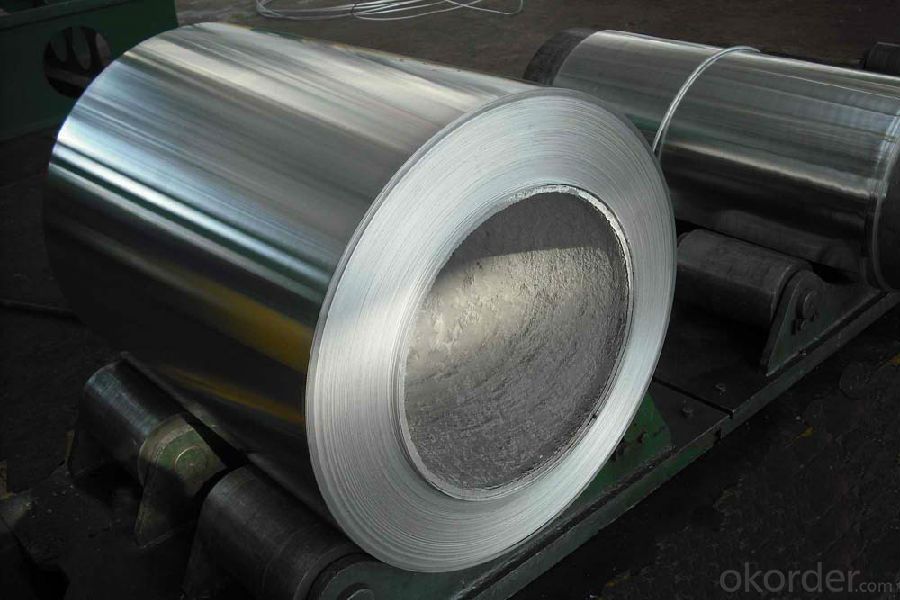
We specially produce and sell all kinds of aluminum foil, coil, sheet and plate with different sizes and applications. For Foil product, the main gauge ranged from 0.006mic to 0.10mm, and width ranged from 200mm to 2000mm. Alloys are 1235/ 1050/1060/1200/8079/8011/8006 etc, and ID is 76mm, 152mm. The main application includes flexible package, cigarette foil, golden card foil, pharmaceutical foil, household foil, container foil, air conditioner foil, lid foil, beer mark foil etc. We also can supply aluminum coil, strip, sheet and plate in alloy of 1000 series, 3000 series, 5000 series, 6000 series and 8000 series etc.
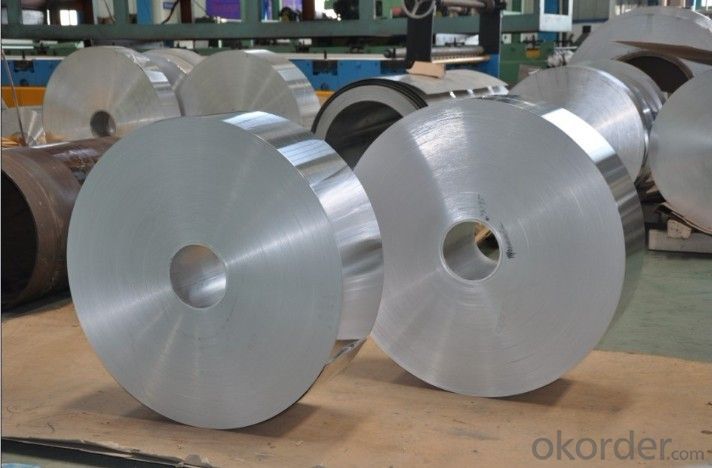
CNBM has passed ISO9001 and ISO14001 successfully, and also approved by American Food and Drug Administration (FDA). By the good product quality and professional service, we have set up a complete sales network. Until now, our products has exported to more than 20 countries and regions including Europe, USA, Canada, Brazil, Southeast Asia and middle east etc.
Our main products for aluminum coils are as follows:
Commodity | Alloy | Temper | Thickness /mm | Width /mm | |
Base material | 1235 1200 1140 8*** | H14 H18 | 0.25-1.00 | 950-1340 | |
Coil for PS | 1050 1060 | H18 | ≥0.2 | 830/920 1030/1050 | |
Sheets for PS | 1050 1060 1070 | H18 | 0.13-0.3 | 650-1300 | |
Strip for venetian blinds | 5052 | H19 | 0.13-0.3 | 300-1300 | |
Coils for composite panels | 1100 3003 3005 | H18/HX2 HX4/HX6 HX8 | 0.03-1.0 | 1000-1300 | |
Coils for other uses | 1100 1235 3004 5052 8011 | H14 H18 H24 O | 0.3-0.4 | 1000-1600 | |
Sheets/Strips for other uses | 5052 | O/H32/H34 | 0.07-2.0 | 950-1550 | |
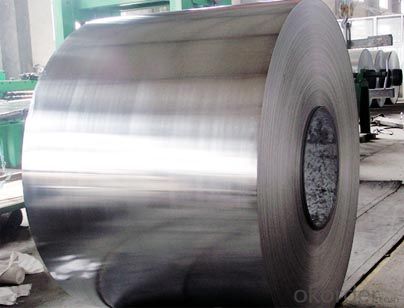
Our Services
CNBM is ready to assist with any product needs or enquiries. We value our customers and welcome your thoughts and feedback.
Please send comments, questions and requests through alibaba or our personal contact so they can be directed to the appropriate department.
About samples: Based on our company rules, a few samples are willing to be offered, but clients are requested to pay freight.
Working time:9:00~17:30(GM+8) from Monday to Friday, but you also can contact with us via personal contact information during our leisure time. We will try our best to offer you service in 24*7 hours.
Any quality, quantity problems are occured, response you will get in time not over more 24 hours after we recieve your complains. Problems will be solved in one week throught friendly negotiation.
- Q: This question asks about the methods used to measure the purity of aluminum.
- <p>The purity of aluminum can be determined through various analytical techniques. One common method is spectroscopic analysis, which includes techniques like atomic absorption spectroscopy (AAS) and inductively coupled plasma mass spectrometry (ICP-MS). These methods can detect trace elements in aluminum, providing a measure of its purity. Another method is gravimetric analysis, where impurities are chemically separated and weighed to determine their concentration. X-ray fluorescence (XRF) is also used for non-destructive testing of aluminum purity. Each method has its advantages and limitations, and the choice depends on the required level of accuracy and the specific impurities of interest.</p>
- Q: Is there a new technology available for recycling aluminum?
- <p>Yes, new technologies are being developed and implemented for recycling aluminum more efficiently. One such technology is the use of advanced sorting systems that can separate different types of metals, including aluminum, from waste streams. Additionally, there are innovations in the smelting process that reduce energy consumption and emissions. For instance, some companies are using inert anodes in the electrolytic process to produce aluminum, which can significantly lower the carbon footprint. These advancements not only make aluminum recycling more environmentally friendly but also more economically viable.</p>
- Q: Is the accumulation of aluminum in the body harmful to health?
- <p>Aluminum buildup in the body has been a subject of concern, particularly in relation to Alzheimer's disease. While aluminum is naturally present in the environment and is used in various products, including food packaging and cookware, there is no strong scientific evidence to support the claim that aluminum exposure or accumulation causes health problems in humans. The World Health Organization and other health authorities have stated that aluminum intake from food and drinking water is not a significant health risk for the general population. However, it is always recommended to follow good hygiene practices and use cookware that is known to be safe for food preparation to minimize any potential risks.</p>
- Q: Is it possible to utilize recycled aluminum in the production of new products more efficiently than current methods?
- <p>Yes, recycled aluminum can be used more effectively in new products than before. Advances in recycling technology have made it easier to purify and refine aluminum from various sources, including post-consumer waste. This not only conserves natural resources but also reduces energy consumption compared to mining and processing raw bauxite. Additionally, the circular economy approach promotes the design of products that are easier to disassemble and recycle, further enhancing the efficiency of using recycled aluminum in new products.</p>
- Q: Is it possible to recycle aluminum cans and turn them into new cans?
- <p>Yes, aluminum cans can be recycled into new ones. The recycling process involves melting the used cans, which is much less energy-intensive than extracting and refining new aluminum from bauxite ore. Once melted, the aluminum can be reshaped into new cans or other products. This process is not only environmentally friendly but also economically efficient, as it saves energy and reduces waste.</p>
- Q: Explain the environmental impact of using aluminum in construction materials.
- <p>Aluminum used in building materials has both positive and negative environmental impacts. On the positive side, aluminum is lightweight, durable, and highly recyclable, which reduces waste and conserves resources. It also has good thermal conductivity, which can improve energy efficiency in buildings. However, the production of aluminum is energy-intensive and generates greenhouse gases, contributing to climate change. Additionally, the mining and processing of bauxite, the primary source of aluminum, can lead to habitat destruction and water pollution. Despite these issues, the recyclability of aluminum means that its environmental footprint can be significantly reduced through proper recycling practices.</p>
- Q: Explain the relationship between aluminum and iron in terms of their properties and uses.
- <p>Aluminum and iron are both metals with distinct properties that determine their various applications. Aluminum is lighter, more resistant to corrosion, and has good thermal conductivity, making it suitable for applications such as beverage cans, aircraft construction, and electrical wiring. Iron, on the other hand, is heavier, stronger, and more magnetic, which makes it ideal for construction materials, steelmaking, and electromagnets. They can be combined to form alloys, such as steel, which is an iron alloy with carbon and sometimes other elements, enhancing its strength and durability.</p>
- Q: This question asks about the amount of energy needed to produce aluminum.
- <p>The energy required for the production of aluminum is substantial. Producing one ton of aluminum typically requires around 15-25 kilowatt-hours of electricity, largely due to the process of electrolysis, which is used to extract aluminum from its ore, bauxite. This high energy consumption is a significant factor in aluminum production costs and environmental impact. The energy required can vary based on the efficiency of the smelting process and the source of electricity used.</p>
- Q: This question asks about the methods used to determine the purity level of aluminum.
- <p>The purity of aluminum is typically measured using various analytical techniques. One common method is spectroscopy, which can identify and quantify the elements present in a sample. Techniques such as X-ray fluorescence (XRF) and Inductively Coupled Plasma Mass Spectrometry (ICP-MS) are used to analyze the composition of aluminum alloys and determine the concentration of impurities. Additionally, metallographic examination can reveal the presence of inclusions or other impurities that affect purity. The American Society for Testing and Materials (ASTM) and other standards organizations provide specific guidelines and methods for testing aluminum purity.</p>
- Q: Describe the process of aluminum oxide formation in a few sentences.
- <p>Aluminum oxide forms through a process known as oxidation, where aluminum reacts with oxygen in the air. This reaction is typically exothermic and can occur at room temperature, especially in the presence of moisture. When aluminum is exposed to oxygen, it forms a thin, protective layer of aluminum oxide on its surface. This layer prevents further oxidation and is what gives aluminum its corrosion resistance. In industrial settings, aluminum oxide can also be produced through electrolysis of aluminum oxide dissolved in molten cryolite.</p>
Send your message to us
Aluminum Anodized Aluminum Coil for Gutter Made in China
- Loading Port:
- Shanghai
- Payment Terms:
- TT OR LC
- Min Order Qty:
- 5 m.t.
- Supply Capability:
- 100000 m.t./month
OKorder Service Pledge
OKorder Financial Service
Similar products
Hot products
Hot Searches
Related keywords
